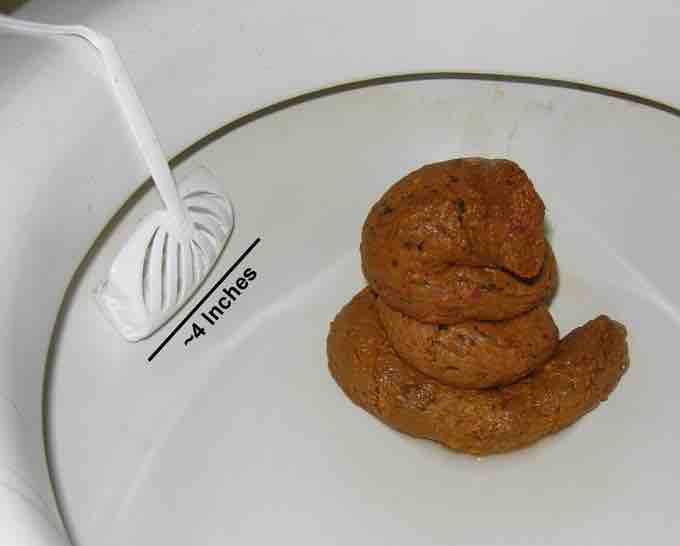After the food has been passed through the small intestine, it enters the large intestine. Within the large intestine, digestion is retained long enough to allow fermentation via gut bacteria, which break down some of the substances that remain after processing in the small intestine. Some of the breakdown products are absorbed. In humans, these include most complex saccharides (at most, three disaccharides are digestible by humans).
Intestinal Bacteria
The large intestine houses over 700 species of bacteria that perform a variety of functions. The large intestine absorbs some of the products formed by the bacteria inhabiting this region. Undigested polysaccharides (fiber) are metabolized to short-chain fatty acids by bacteria in the large intestine and absorbed by passive diffusion. The bicarbonate that the large intestine secretes helps to neutralize the increased acidity from the formation of fatty acids.
Intestinal bacteria also produce large amounts of vitamins, especially vitamin K and biotin (a B vitamin), which are absorbed into the blood. Although this source of vitamins provides only a small part of the daily requirement, it makes a significant contribution when dietary vitamin intake is low. An individual that depends on absorption of vitamins formed by bacteria in the large intestine may become vitamin-deficient if treated with antibiotics that inhibit other species of bacteria while targeting the disease-causing bacteria.
Other bacterial products include gas (flatus), which is a mixture of nitrogen and carbon dioxide, with small amounts of the gases hydrogen, methane, and hydrogen sulphide. Bacterial fermentation of undigested polysaccharides produces these gases.
Intestinal flora are also essential in the development of certain tissues, including the cecum and lymphatics.
Water and Cellulose
The large intestine absorbs water from the chyme and stores feces until it can be egested. Food products that cannot go through the villi, such as cellulose (dietary fiber), are mixed with other waste products from the body and become hard and concentrated feces. The feces is stored in the rectum for a certain period and then the stored feces is eliminated from the body due to the contraction and relaxation through the anus . The exit of this waste material is regulated by the anal sphincter.

Human Feces
Note the mucus coating and bits of partially undigested food.